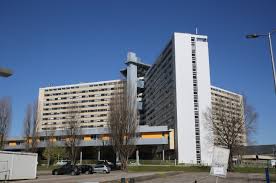
Service de Génétique Médicale
Hôpital Pellegrin
CHU de Bordeaux
33076 Bordeaux Cedex
France
Lead

Pr Didier Lacombe
Phone: +33 (0)5 57 82 03 63
Fax: 33 (0)5 56 79 56 48
Scope
The area of expertise of the Bordeaux Centre of the ITHACA European Reference Network (ERN) covers all syndromes exhibiting developmental abnormalities and/or intellectual disability (ID). About 1/40 newborn has a congenital malformation (261/10000 fetuses and newborn following EuroCAt reports), and 1/40 has ID. Therefore, 3 to 5 % of all human births show or will develop a developmental anomaly, among which at least 25-50% are of genetic or genomic origin. The jurisdiction and scope of expertise of Bordeaux ITHACA Centre includes:
- over 5500 dysmorphic and multiple congenital anomalies (MCA) syndromes (listed in the London Dysmorphology Database), among which over 3000 monogenic diseases, all chromosome abnormalities (most of them only detectable through array technologies), multifactorial, sporadic dysmorphic anomalies and embryo-fetopathies of environmental origin
- >1500 monogenic and hundreds chromosomal forms of ID with or without associated autism spectrum disorder (ASD).
Service to patients
The regional population covered by the Bordeaux Centre includes more than 3.3 millions inhabitants (Aquitania). The HCP is the only hospital of Aquitania region with a genetics department.
The Bordeaux Reference Center (CLAD-SOOR) is located at the University Hospital of Bordeaux and was certified in 2004 in France. CLAD-SOOR provide care for patients of any age, from the fetal period to adulthood, and for pregnant women. CLAD-SOOR combines all genetics consultations of the Southwest of the France, whose activity is very largely focused on developmental anomalies and on malformation syndromes. CLAD-SOOR must assume the missions of expertise and coordination of medical, paramedical, psychological and social care. The department of Genetics contibute to the care by offering genetic diagnosis, genetic testing, familial screening, genetic counseling, neuropsychological evaluation, prenatal diagnosis, follow up and care of patients with MCA and ID, and therapeutic assays in the field of developmental anomalies. The clinical Department includes 6 MD geneticists, 2 genetic counselors, 3 nurses, 3 psychologists, 1 speech therapist, and 2 social workers. Patients are seen in outpatient clinics or in day hospitalisation ward. The department counts three labs: molecular biology (including NGS facility), cytogenetics (including array technology) and fetal pathology. The department works with the child neurology dept. that contribute to the care of metabolic disorders and child epilepsy. Given the large geographical area that must cover CLAD-SOOR, delocalised consultations were set up at both hospitals of Bayonne and Pau and a project is under way to cover all the region’s health territories. Also, delocalised consultations take place once a year in Martinique and New Caledonia.
Organization of the Center
CHU of Bordeaux is one of the largest hospital in France (over 320 pediatric beds and a maternity with 3000 birth). It offers full coverage of general and specialized cares for children and pregnant women, in particular: a department of medical genetics offering genetic consultation for children and adults, and pregnant women; a department of child neurology and metabolic disorders; a department of child psychiatry offering multidisciplinary diagnostic and care for ID children; departments of general pediatrics, pediatric cardiology,nephrology, surgery, orthopedics, ENT, ophthalmology…; prenatal diagnostic facilities; full technical support, including classic medical laboratoires, medical imaging, biological investigations, electrophysiology, genetic investigation (arrays, NGS), fetal pathology. The Genetic Unit, core of this application, organizes genetic diagnosis, genetic testing, familial screening, genetic counseling, prenatal diagnosis, follow up and care of patients with MCA and ID, and therapeutic assays in the field of developmental anomalies (fragile X, trisomy 21, Rubinstein-Taybi syndrome…).
The coordonator of the reference center is the Director of a research INSERM unit (UMR 1211) dedicated to rares disorders, especially birth defects with a focus on Rubinstein-Taybi syndrome, Goldehar syndrome and Costello syndrome.
